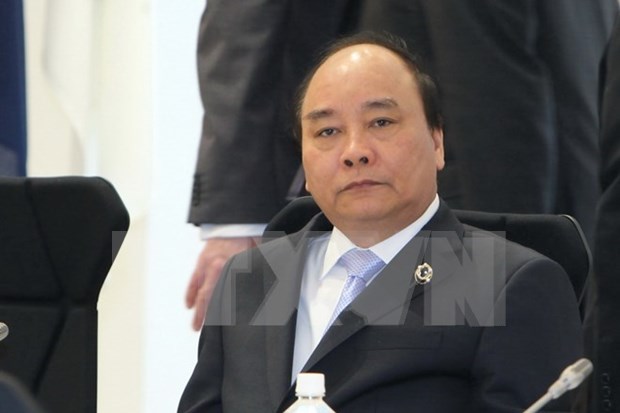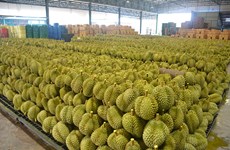ASEAN Summits looks to forge bloc’s connectivity
Vietnamese Prime Minister Nguyen Xuan Phuc will join other leaders from ASEAN member states at the 28th & 29th ASEAN Summits and related events in Vientiane, Laos, from September 6-8.
 Prime Minister Nguyen Xuan Phuc (Photo: VNA)
Prime Minister Nguyen Xuan Phuc (Photo: VNA)This is the first ASEAN Summit held since the official formation of the ASEAN Community on December 31, 2015.
Participants are scheduled to partake in 11 official meetings, including the 28th & 29th ASEAN Summits; the 19th ASEAN+3 Summit; the fourth East Asia Summit (EAS); seven ASEAN+1 summits with seven partners – namely China, the Republic of Korea, Japan, the US, India, Australia and the United Nations; and the 8th Mekong – Japan Summit Meeting.
The meetings will focus discussion on strengthening ASEAN connectivity, solidarity and the bloc’s central role in the region while enhancing cooperation between the association and its partners. Leaders will also take the occasion to exchange views on regional and international issues of shared concerns.
Vietnam has been an active, proactive and responsible member of ASEAN, and will continue to promote its role and cooperation with other members to realise the ASEAN Vision 2025.
The association has gained positive strides in implementing ASEAN Vision 2025 and blueprints across three pillars.
Regarding the political-security pillar, 140 out of 290 action lines set in the ASEAN Blueprint 2025 have been implemented effectively, with the most outstanding examples including the launching of hotlines between ASEAN defense agencies and the establishment of ASEAN Centre of Military Medicine.
Member countries have also drafted an ASEAN action plan on combating trans-national crime and adopted statements on enhancing cooperation among maritime law enforcement forces and management of cross-border movement of criminals within the framework of the ASEAN Regional Forum (ARF).
Economically, 530 out of 611 action lines set in the blueprint are being carried out to promote trade of goods and services, competition, and protection of customers’ rights and intellectual property. The association is building a general strategic action plan for the ASEAN Economic Community through 2025.
Regarding culture and society, ASEAN is implementing activities across 109 action lines in the fields of education, youths, sports and culture.
The association is pushing ahead with the Initiative for ASEAN Integration (IAI) to narrow development gaps in five areas: food and agriculture; trade facilitation; small-and medium-sized enterprises; education; and health and social welfare.
The Master Plan on ASEAN Connectivity 2025 will be submitted to the bloc’s leaders, which focuses on five strategic fields: infrastructure; digital innovation; seamless logistics; optimising policy making and implementing; and movement of natural persons.
Additionally, the bloc is further improving its operation and promoting awareness campaigns towards the celebration of the 50 th founding anniversary of ASEAN in 2017.
In 2016, the cooperative ties between ASEAN and dialogue partners have reaped remarkable outcomes with the successful organisation of the special ASEAN-US Summit, the Commemorative ASEAN-Russia Summit to mark their 20-year-old partnership, and the special conference of ASEAN and Chinese foreign ministers.
Eighty-six partners have dispatched their ambassadors to ASEAN and 50 ASEAN Committees around the world.
ASEAN has recently approved the participation of Chile, Iran, Egypt, and Morocco in the Treaty of Amity and Cooperation (TAC) and granted sectoral partnership to Switzerland and development partnership to Germany.
That more partners expressed their wish to establish relations with ASEAN demonstrates the bloc’s increasing role and position in the region.
The ASEAN groups Brunei, Cambodia, Indonesia, Laos, Malaysia, Myanmar, the Philippines, Singapore, Thailand and Vietnam.-VNA













